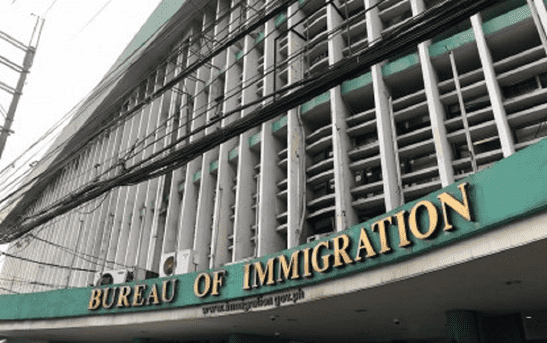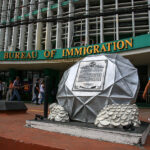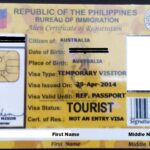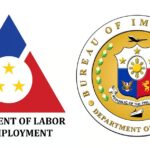The 9G working visa, officially called the Pre‑arranged Employment Visa, is the most common employment visa issued to foreign nationals working in the Philippines. It allows eligible foreigners to work legally while staying in the country for the duration of their employment contract. Whether you are a professional relocating for career opportunities or an employer sponsoring a skilled expatriate, understanding the 9G working visa process is essential for compliance and smooth integration into the Philippine workforce.
Understanding the 9G Working Visa
The 9G Pre‑arranged Employment Visa is granted to foreign nationals who have secured lawful employment with a company registered and licensed to operate in the Philippines. It is administered by the Bureau of Immigration (BI) under the Philippine Immigration Act of 1940 (Commonwealth Act No. 613) and requires an Alien Employment Permit (AEP) issued by the Department of Labor and Employment (DOLE).
This visa type is typically valid for one, two, or three years, depending on the employment contract and the validity of the AEP. It can be extended in increments of up to three years as long as the employment relationship remains valid.
Once approved, the 9G visa allows multiple entries, letting workers travel in and out of the Philippines freely while under contract.
Who Is Eligible to Apply for a 9G Working Visa?
Foreigners must meet specific criteria before applying for a 9G visa. Basic eligibility includes:
- Employment with a Philippine‑registered company or organization.
- A position that requires technical, executive, or highly specialized skills not readily available among local workers.
- Valid employment contract approved by the employer and notarized.
- Clear record — applicants must not have any pending criminal charges.
- Medical clearance confirming physical and mental fitness for work.
Dependents (spouse and unmarried children below 21 years old) may also be included under a dependent 9G visa, issued once the principal’s employment visa is approved.
Role of the Alien Employment Permit (AEP)
The Alien Employment Permit (AEP) is mandatory for 9G visa applicants. It serves as DOLE’s confirmation that no qualified Filipino is available for the position being offered to the foreign worker.
Employers must apply for the AEP on behalf of their foreign hire. To qualify, the company must have a valid business permit, SEC or DTI registration, and show compliance with local employment regulations. The AEP typically takes two to three weeks to process once all documents have been submitted.
During AEP processing, the applicant may apply for a Provisional Work Permit (PWP) from the Bureau of Immigration, allowing them to begin working legally while waiting for both AEP and 9G visa approval.
Documents Required for 9G Working Visa Application
Applying for a 9G working visa requires both corporate and personal documents. To avoid delays, ensure that all documents are authenticated and consistent.
Corporate Documents:
- Joint letter request from the employer and the foreign applicant.
- SEC Certificate of Incorporation, Articles of Incorporation, and General Information Sheet (GIS).
- Mayor’s permit or DTI registration (for sole proprietorships).
- Notarized workforce composition showing the ratio of Filipino to foreign employees.
- Business tax returns and other financial statements, if requested by BI.
Applicant’s Personal Documents:
- Duly accomplished visa application form (BI Form MCL‑07‑01).
- Certified copy of the Alien Employment Permit (AEP) issued by DOLE.
- Valid passport with at least six months’ remaining validity.
- Employment contract signed and notarized by both parties.
- Medical and physical examination report completed by an accredited physician.
- Police clearance from the country of origin (apostilled or authenticated by the Philippine Embassy).
- Bureau of Immigration clearance certificate.
- Four passport‑sized photos on a white background.
- Alien Certificate of Registration (ACR‑I Card) for renewal applicants.
For dependents: authenticated marriage and birth certificates must be provided.
How to Apply for a 9G Working Visa
Step 1: Secure an Alien Employment Permit (AEP)
The employer first files the AEP application with the appropriate DOLE Regional Office covering the place of employment. Once approved, DOLE issues the permit, usually valid for one to three years in alignment with the employment contract.
Step 2: Apply for a Provisional Work Permit (Optional)
If the foreign employee must begin work before the 9G visa is issued, a Provisional Work Permit (PWP) can be secured. The PWP is valid for three months or until the 9G visa is approved.
Step 3: Prepare and Submit Documents to the Bureau of Immigration
Submit all required documents to the Bureau of Immigration (BI) Main Office in Manila or authorized satellite offices. The application must include the AEP, employer certifications, medical report, employment contract, and identification documents.
Step 4: Biometrics Capture and Interview
Applicants are required to appear in person for fingerprinting and photo capture. The BI may schedule an interview to verify employment details.
Step 5: Pay Applicable Fees
Visa processing fees depend on contract length, company type, and dependents. Payment receipts must be kept for claim schedules and further extensions.
Step 6: Wait for Visa Approval and Issuance of ACR‑I Card
The processing period typically ranges from two to three months, but may extend depending on BI workload and completeness of documentation. Once approved, the applicant receives an ACR‑I Card, which serves as proof of legal stay and employment authorization.
How Long is the 9G Working Visa Valid?
The 9G working visa is commonly issued with an initial validity of one to three years, matching the terms of the employment contract or AEP validity period. When employment continues, it can be renewed in increments of up to three years.
If the employment contract ends or the worker transfers to another employer, the 9G visa is automatically canceled. The visa holder must either apply for a new one with the new employer or convert back to a tourist visa.
Responsibilities of Employers and Visa Holders
Both the employer and the foreign employee must comply with immigration and labor laws throughout the visa’s duration:
- Employers must report to the BI within 30 days of hiring or terminating a foreign employee.
- Employees must refrain from engaging in work unrelated to their approved employment contract.
- Any change in position, salary, or company ownership requires BI updating or amendment of records.
Failure to comply may result in fines, visa cancellation, or blacklisting.
Costs and Government Fees
9G visa fees vary but generally include the following:
- Alien Employment Permit (AEP) Fee: ₱9,000 for a one‑year permit.
- BI Application Fee and Visa Issuance Fee: ₱8,000 to ₱12,000 depending on duration.
- ACR‑I Card Fee: Approximately ₱3,000.
- Provisional Work Permit (Optional): ₱4,000.
Applicants are encouraged to verify the latest fee schedule directly with the Bureau of Immigration, as rates may be updated annually.
Common Issues and How to Avoid Them
Foreign nationals and employers often encounter difficulties during 9G visa processing due to avoidable mistakes. Typical issues include:
- Missing or unverified documents (especially police and medical clearances).
- Business permits or corporate paperwork not updated.
- Late submission for visa conversion leading to overstaying fines.
- Incomplete AEP compliance documents (e.g., missing publication proof).
To prevent delays, ensure that every document, especially those issued abroad, is apostilled or authenticated by the Philippine Embassy or Consulate. Partnering with a professional immigration service provider reduces these risks significantly.
Benefits of Holding a 9G Working Visa
The 9G working visa not only provides legal work authorization but also opens access to several advantages:
- Legal employment status under Philippine law.
- Multiple‑entry privileges without repeat temporary visas.
- Residency rights equivalent to the employment contract’s validity.
- Eligibility to apply for dependent visas.
- Easily renewable when employment continues.
These benefits make the 9G working visa the foremost route for expatriates seeking long‑term career opportunities in the Philippines.
Why Professional 9G Working Visa Assistance Matters
Navigating visa procedures in the Philippines can be complex, involving two government agencies, DOLE and BI, each with its own compliance rules. Professional 9G working visa assistance ensures:
- Accurate document preparation and verification.
- Timely coordination with government offices.
- Avoidance of overstaying penalties.
- Faster approval and reduced administrative errors.
Legal specialists manage your AEP and 9G processing concurrently, monitor timelines, and keep records compliant with the latest regulations.
Final Thoughts
The 9G working visa is an essential gateway for foreign professionals wishing to work and legally reside in the Philippines. From obtaining an Alien Employment Permit to final visa approval with the Bureau of Immigration, every stage requires strict compliance and careful documentation. Employers and workers who understand these processes, or work with expert assistance, ensure lawful, worry‑free employment continuity.
For foreign nationals seeking extended work opportunities in the Philippines, securing this visa not only legitimizes employment but also provides practical stability and mobility to build a prosperous future.
Need Expert Help with Your 9G Working Visa?
Work Visa Philippines offers professional assistance to individuals and companies processing 9G working visa applications. Our legal and administrative specialists ensure full compliance with Bureau of Immigration and DOLE guidelines, from securing your AEP to visa issuance and renewal. Contact us today to begin your 9G visa processing with confidence:
- Contact Us Here
- Fill Out the Form Below
- Call us at +63 (02) 8540-9623





